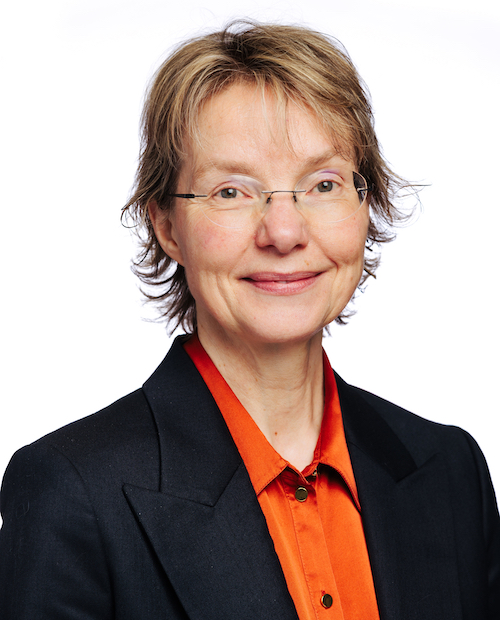Controlling catalyst selectivity is a key criterion for the successful transition to a post-fossil, sustainable chemical industry. Beyond the tuning of catalytic sites, confinement in a pore or cavity of molecular dimensions is one approach to the selectivity challenge. Confinement may offer geometric and electronic stabilization of critical intermediates and transition states, without promoting by-product formation.
Metal organic frameworks (MOFs) is an emerging class of crystalline, porous hybrid materials with exceptional tunability. Although heir thermal and chemical stability is inferior to those of the classical microporous catalyst, zeolites, a few MOF families reached a level of stability that enables systematic studies of their catalytic structure-function correlations, yielding new insight in reactions at metal, metal oxide and/or metal – ligand sites and interfaces.
In this lecture, focus will be set on studies of a few, selected systems where the combined kit of experiment and theory proved essential to reach molecular-scale mechanistic insight, for desired as well as undesired product formation: CO2 hydrogenation [1-3], ethene oligomerization [4], and asymmetric synthesis [5].
Acknowledgement
The author acknowledges funding from the European Research Council under the European Union’s Horizon 2020 research and innovation program (grant agreement No 856446 (CUBE)), and from the Norwegian Research Council under Grant Agreements No 250795 (CONFINE) and 288331 (CO2LO).
References
- Gutterød, E. S.; Øien-Ødegaard, S.; Bossers, K.; Nieuwelink, A.-E.; Manzoli, M.; Braglia, L.; Lazzarini, A.; Borfecchia, E.; Ahmadigoltapeh, S.; Bouchevreau, B.; Lønstad-Bleken, B. T.; Henry, R.; Lamberti, C.; Bordiga, S.; Weckhuysen, B. M.; Lillerud, K. P.; Olsbye, U., CO2 Hydrogenation over Pt-Containing UiO-67 Zr-MOFs—The Base Case. Industrial & Engineering Chemistry Research 2017, 56 (45), 13206-13218.
- Gutterød, E.S.; Lazzarini, A.; Fjermestad, T.; Kaur, G.; Manzoli, M.; Bordiga, S.; Svelle, S.; Lillerud, K.P.; Skulason, E.; Oien-Odegaard, S.; Nova, A.; Olsbye, U.; Hydrogenation of CO2 to Methanol by Pt Nanoparticles Encapsulated in UiO-67: Deciphering the Role of the Metal-Organic Framework. Journal of the American Chemical Society, 2020, 142(2), 999-1009.
- Gutterød, E.S.; Pulumati, S.H.; Kaur, G.; Lazzarini, A.; Solemsli, B.G.; Gunnæs, A.E.; Ahoba-Sam, C.; Kalyva, M.E.; Sannes, J.A.; Svelle, S.; Skúlason, E.; Nova,A.; Olsbye, U.; Influence of Defects and H2O on the Hydrogenation of CO2 to Methanol over Pt Nanoparticles in UiO-67 Metal−Organic Framework. Journal of the American Chemical Society, 2020, 142, 17105-17118.
- Kømurcu, M.; Lazzarini, A.; Kaur, G.; Borfecchia, E.; Øien-Ødegaard, S.; Gianolio, D.; Bordiga, S.; Lillerud, K.P.; Olsbye, U.; Co-catalyst free ethene dimerization over Zr-based metal-organic framework (UiO-67) functionalized with Ni and bipyridine, Catalysis Today, 2021, 369, 193-202.
- Rotunno, G.; Kaur, G.; Lazzarini, A.; Buono, C.; Amedjkouh, M., Symmetry Breaking and Autocatalytic Amplification in Soai Reaction Confined within UiO-MOFs under Heterogenous Conditions. Chemistry – An Asian Journal, 2021, 16, 2154-2369.
Biography

Dr. Unni Olsbye is Professor at UiO since 2001. She is an expert of heterogeneous catalysis and has authored more than 200 scientific papers (H-index 62 (Web of Science)).
Research:
Prof. Olsbye’s research is mainly directed towards structure-composition-function correlations in catalytic reactions, with emphasis on mechanistic studies of target- and by-product formation. In recent years, major efforts have been devoted to study the influence of confinement effects in micro- and nanoporous materials.
Processes studied include methanol conversion to hydrocarbons, methane partial oxidation to syngas and methanol, CO2 conversion to methanol and hydrocarbons, light alkane dehydrogenation and oligomerization, methyl halide conversion, ethene oxychlorination.
Major grants:
- Managing Director of the center of research based innovation inGAP (2008-2015), aimed at developing new and improved industrial processes based on fundamental insight in catalytic materials and reactions.
- Received a Top Researcher grant from the Norwegian Research Council to study confinement effects in zeolites and metal-organic frameworks (CONFINE, 2016-2020),
- Coordinating PI of a Horizon2020 project on CO2 valorisation (COZMOS, 2019-2023)
- Corresponding PI of an ERC Synergy grant project aimed at cross-fertilizing enzymatic and heterogeneous catalysis fields (CUBE, 2020-2025)
Awards and elected memberships:
- Award for Excellence in Natural Gas Conversion (2019)
- Wilhelm Manchot Research Professor Award (2019)
- University of Oslo Innovation Award in 2017 (awarded annually for ideas emerging from at UiO that have shown significant value creation for society)
- Elected member of the Norwegian Academy of Technical Sciences (2009) and the Norwegian Academy of Science and Letters (2015)




